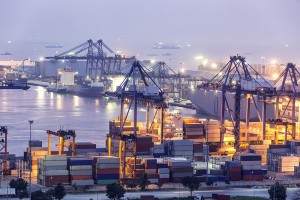About us
 The International Workshop is organised and sponsored by the following cross-disciplinary network of research groups and institutions based at the University of Manchester: Global Production Network, Labour and Trade Research Group; School of Environment, Education and Development; Centre for Comparative and International Business; and Manchester Business School.
The International Workshop is organised and sponsored by the following cross-disciplinary network of research groups and institutions based at the University of Manchester: Global Production Network, Labour and Trade Research Group; School of Environment, Education and Development; Centre for Comparative and International Business; and Manchester Business School.
The background to the 2015 International workshop is that whilst the University of Manchester is recognised as the birthplace for the global production network (GPN) framework (economic geography), it has also attracted a group of global value chain (GVC) scholars (development studies) and leading international business specialists. Critical engagement within and across these disciplines and academic frameworks has grown apace. We have sought to cross disciplinary divides, attract a cohort of doctoral students and undertake a series of collaborative research endeavours (Capturing the Gains, Rising Powers).
More broadly, conceptual and empirical research drawing on global value chain (GVC), global production network (GPN) and international business models have grown apace. Major global policy organisations, donors and other stakeholders are increasingly using these frameworks to understand global trade and development.
The GVC framework, in particular, has gained traction in inter alia the World Trade Organisation (WTO), International Labour Organisation (ILO), United Nations Conference on Trade and Development (UNCTAD), Inter-American Development Bank (IADB) and the World Bank. GVCs form the backbone of the global economy, accounting for more than 80% of global trade (UNCTAD 2013). In the last year alone, key reports by OECD, UNCTAD, WTO, World Bank and African Development Bank focused on GVCs and their potential to drive developmental outcomes. This is an exciting and important development, but critical thinking is needed in terms of how these frameworks are interpreted and applied by policy organisations.
Fifteen years on, it is worth reflecting on how the three distinct disciplines of economic geography, business studies
and international development have helped to develop our understanding of the dynamics of globalised production
and local consequences. We need to consider implications for current policy debates, and ways in which new cross-disciplinary theory building might help us to understand the research gaps and challenges. This is a critical agenda, as the contours and dynamics of globalisation evolve in the early 21st century. The 2015 International workshop at Manchester provides another key step in this journey.
